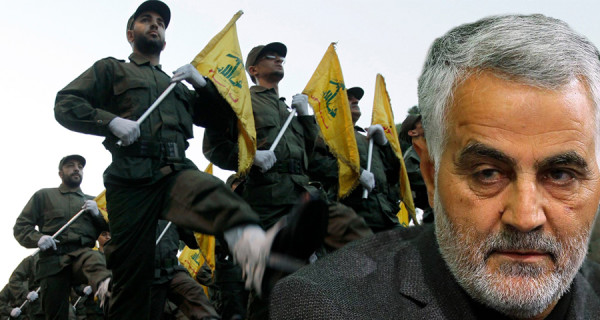
Arab Organization Blocks al-Manar’s Broadcast via Arabsat
Naharnet/04 December/15/The Arab League-affiliated Arab Satellite Communications Organization has blocked the broadcast of al-Manar television via the Arabsat satellites, the Hizbullah-owned TV network announced on Friday. “In the latest step in the policy of muzzling voices … the Arabsat company has blocked the al-Manar channel, after the company’s offices were moved from Lebanon to Jordan,” al-Manar said in its evening news bulletin. The Arab Satellite Communications Organization, often abbreviated as Arabsat, is an Arab League-affiliated satellite operator headquartered in the city of Riyadh, Saudi Arabia. In an apparent jab at the kingdom’s rulers, al-Manar said it “was not silenced by Zionist aggression and will not be silenced by Jahelite malice.” The channel’s headquarters was continuously struck by missiles during the 2006 war between Hizbullah and Israel. Despite the attacks, the TV network remained on air, broadcasting from undisclosed locations. Al-Manar also vowed Friday to maintain the same coverage of the events in the Palestinian territories, Yemen, Iraq, Syria, Tunisia, Egypt, Saudi Arabia, Kuwait and Bahrain. In remarks to al-Manar, Information Minister Ramzi Jreij said Lebanese authorities have not been informed of Arabsat’s decision, calling on the Telecom Ministry to follow up on the issue through the judicial channels. The foundation of the Arab Satellite Communications Organization (Arabsat) dates back to the end of the 1960s. On April 14, 1976, Arabsat was formed under Arab League jurisdiction. Saudi Arabia was the main financier of the new organization due to its expanded financial resources as a result of the oil-boom period and Riyadh housed Arabsat’s headquarters. All Arab League states except for Comoros are shareholders of Arabsat. Lebanon has 3.8% of the shares whereas Saudi Arabia holds 36.7%
Saudi Arabia Sanctions Hezbollah Officials
David Andrew Weinberg/Foundation for Defense of Democracies/3rd December 2015
Saudi Arabia’s state news wire announced sanctions last Thursday on twelve Hezbollah officials for alleged involvement in the group’s regional activities, particularly its military intervention on behalf of the Bashar al-Assad regime in Syria. The Saudi measures represent a partial step towards Riyadh bringing its terror sanctions list in line with Washington’s and come amidst a broader Saudi effort to pressure Iran’s most important proxy group. However, the measures also call attention to some glaring shortcomings in the kingdom’s counterterrorism efforts.
The vast majority of individuals designated last week by Riyadh were already sanctioned by the U.S. government.
Adham Tabaja, Hussein Ali Faour, Qasim Hajij, and their businesses – a real estate firm and auto-repair center – were sanctioned by the U.S. Treasury Department in June. According to a 2011 CNN report, Muhammad Yusuf Mansour served time in an Egyptian prison for leading a Hezbollah cell and planning attacks there. In 2013, Treasury sanctioned him and Mohammed Kawtharani, alleging that Kawtharani headed Hezbollah’s Iraq activities and was responsible for several attacks on U.S. soldiers.
Treasury sanctioned Ali Mousa Daqduq in 2012 after he was freed from Iraqi prison despite protests from Washington, which blamed him for killing American forces in Iraq. Four other individuals sanctioned by Riyadh last week were also designated by the Treasury in July on charges of providing operational or financial support to Hezbollah’s military efforts in Syria.
The new sanctions follow several other Saudi steps this year to target Hezbollah leaders. In May, Saudi Arabia sanctioned two Hezbollah commanders whom the U.S. had also sanctioned in 2013. In August, Saudi Arabia also announced it had captured the military commander of Hezbollah’s Saudi branch and mastermind of the 1996 Khobar Towers bombing that killed 19 American military personnel.
Yet the credibility of Saudi Arabia’s recent anti-Hezbollah sanctions could be undermined if the kingdom continues to drag its feet on other counterterrorism measures.
For example, Saudi Arabia has been providing safe haven and failing to pursue legal action against two Yemenis on U.S. sanctions lists accused of providing significant material or financial support to al-Qaeda.
Moreover, last week’s announcement indicated that the new Saudi sanctions were based on a royal order used in March 2014 to designate Hezbollah’s branch “in the kingdom,” but not the group’s Lebanese core or other regional branches. Also excluded were other terrorist groups that primarily target Israeli civilians, such as Hamas and Palestinian Islamic Jihad.
Saudi Arabia’s latest Hezbollah sanctions are a step in the right direction, but the kingdom continues to give other terror groups a free pass.
**David Andrew Weinberg is a senior fellow at Foundation for Defense of Democracies.Follow him on Twitter @DavidAWeinberg






















